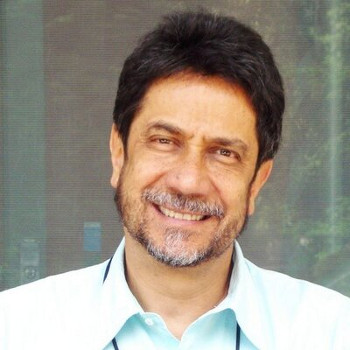Virgílio Almeida

Short Bio
He is currently a Faculty Associate at the Berkman Klein Center at Harvard University. Virgilio Almeida was a full professor of Computer Science at the Federal University of Minas Gerais (UFMG) until he retired in 2017. In 2016 he was Visiting Professor at the School of Engineering and Applied Sciences at Harvard University. Virgilio received his PhD degree in Computer Science at Vanderbilt University, master's degree in computer science at PUC-Rio de Janeiro and bachelor degree in Electrical Engineering from Federal University of Minas Gerais. He held visiting positions in several universities and research labs, such as New York University, Boston University, Santa Fe Institute and HP Research Labs.
Virgilio is member of the Brazilian Academy of Sciences (ABC) and the Academy of Sciences for the Developing World (TWAS). Virgilio was the National Secretary for Information Technology Policies of the Brazilian government from 2011 to 2015. He was the chair of the Brazilian Internet Steering Committee (CGI.br) from 2011-2016. He was also the chair of NETmundial, the Global Multistakeholder Conference on the Future of Internet Governance, that was held in Sao Paulo in 2014. He has also been member of scientific boards in Brazilian research agencies such as CNPq and CAPES. Professor Virgilio has received numerous academic and scientific awards. His research interests are focused mainly on social computing, ethics and governance, modeling and analysis of large scale distributed systems.
Impactos Éticos e Sociais da Computação
Com a crescente digitalização da sociedade e com o avanço dos sistemas autônomos e inteligência artificial, novos desafios e oportunidades se colocam para a comunidade técnica, em especial no Brasil. "Fake News", discriminação, restrição a direitos humanos são apenas alguns dos problemas que decorrem do avanço das tecnologias digitais. São problemas de natureza ética e moral que tem impactos sociais, econômicos e políticos. Por outro lado, há inúmeras possibilidades de impacto positivo, como os exemplos nas áreas de saúde, mobilidade e entretenimento. Nesta palestra, discutirei alguns exemplos concretos de pesquisas em computação e áreas correlatas que ressaltam impactos na sociedade, como direito ao esquecimento, proteção de privacidade, "surveillance" e algoritmos de classificação e priorização.